Introduction
Cholesterol is a fatty substance that is naturally produced by our bodies and is also found in certain foods. While cholesterol is essential for various bodily functions, high levels of cholesterol can lead to serious health issues, such as heart disease. Therefore, it is important to maintain healthy cholesterol levels. In this article, we will discuss effective strategies to lower cholesterol naturally.
1. Understanding Cholesterol
What is cholesterol?
It is a waxy substance that is produced by the liver and also found in certain foods. It is essential for the production of hormones, vitamin D, and bile acids, which aid in digestion.
Types
There are two main types: low-density lipoprotein (LDL) and high-density lipoprotein (HDL). LDL is often referred to as “bad” cholesterol as it can build up in the arteries, leading to plaque formation. HDL, on the other hand, is known as “good” cholesterol as it helps remove LDL from the bloodstream.
Good cholesterol vs. bad cholesterol
Maintaining a healthy balance between HDL and LDL is crucial for heart health. High levels of LDL increase the risk of heart disease, while high levels of HDL are associated with a reduced risk.
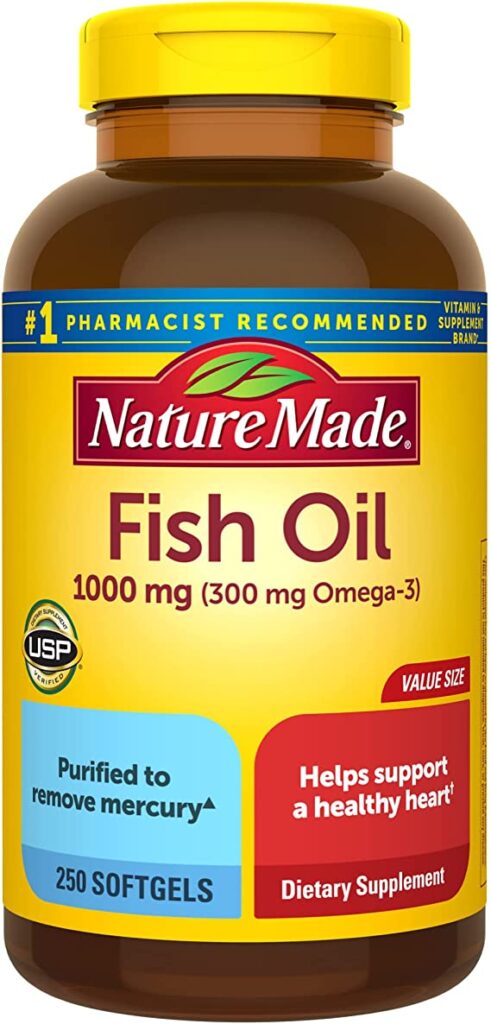
Nature Made Fish Oil 1000 mg Softgels, Omega 3 Fish Oil for Healthy Heart Support, Supplement with 250 Softgels, 125 Day Supply
2. Healthy Lifestyle Habits
Balanced diet and portion control
Eating a balanced diet that includes fruits, vegetables, whole grains, lean proteins, and healthy fats is essential for managing cholesterol levels. Portion control is also important to prevent overeating.
Regular exercise
Engaging in regular physical activity helps increase HDL levels and promotes heart health. Aim for at least 150 minutes of moderate-intensity aerobic exercise each week.
Smoking cessation
Smoking damages blood vessels, lowers HDL levels, and increases the risk of heart disease. Quitting smoking is crucial for improving overall health and lowering cholesterol levels.
Moderate alcohol consumption
Moderate alcohol consumption, such as having a glass of red wine, may have some cardiovascular benefits. However, excessive alcohol intake can raise cholesterol levels and contribute to other health problems.
3. Heart-Healthy Diet
Incorporating fiber-rich foods
Fiber-rich foods, such as whole grains, legumes, fruits, and vegetables, help lower LDL levels. They also provide essential nutrients and promote digestive health.
Choosing healthy fats
Replace unhealthy fats, such as saturated and trans fats, with healthier alternatives like monounsaturated and polyunsaturated fats. Good sources of healthy fats include avocados, nuts, seeds, and olive oil.
Including omega-3 fatty acids
Omega-3 fatty acids help reduce triglyceride levels and have been shown to have a positive impact on heart health. Include fatty fish like salmon, walnuts, chia seeds, and flaxseeds in your diet.
Limiting saturated and trans fats
Saturated and trans fats raise LDL levels and increase the risk of heart disease. Limit the consumption of red meat, full-fat dairy products, fried foods, and commercially baked goods.
Consuming plant sterols
Plant sterols are naturally occurring substances that help block the absorption of cholesterol in the intestines. Foods fortified with plant sterols, such as certain margarines and orange juice, can help lower LDL.
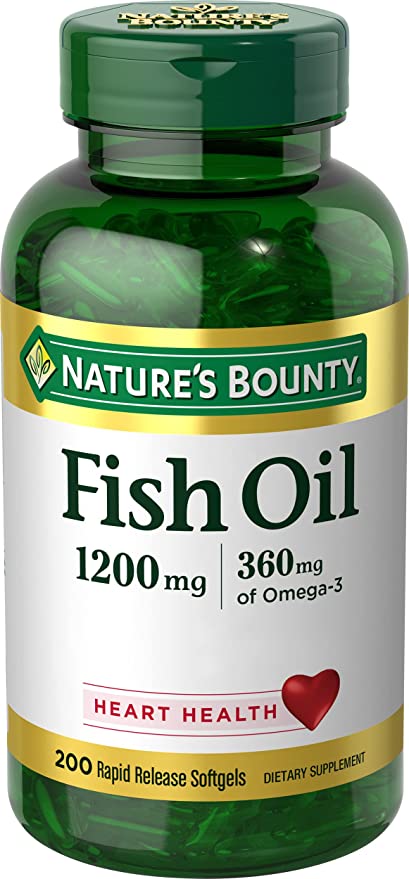
Nature’s Bounty Fish Oil, Supports Heart Health, 1200 Mg, Rapid Release Softgels, 200 Ct
4. Physical Activity and Exercise
Regular physical activity not only helps maintain a healthy weight but also improves cholesterol levels. Incorporate the following types of exercises into your routine:
Aerobic exercises
Activities like brisk walking, jogging, cycling, and swimming are excellent for cardiovascular health and cholesterol management.
Strength training
Strength training exercises, such as weightlifting, promote muscle development and increase metabolism, helping with weight management.
Flexibility exercises
Practicing yoga, Pilates, or stretching exercises improves flexibility and overall fitness.
5. Smoking Cessation
Health risks of smoking
Smoking damages blood vessels, lowers HDL levels, and increases the risk of heart disease, stroke, and various cancers.
Strategies to quit smoking
Seek professional help, use nicotine replacement therapies, join support groups, or try alternative therapies like acupuncture to quit smoking successfully.
Benefits of quitting
Quitting smoking improves lung function, reduces the risk of heart disease and cancer, and enhances overall health, including cholesterol levels.
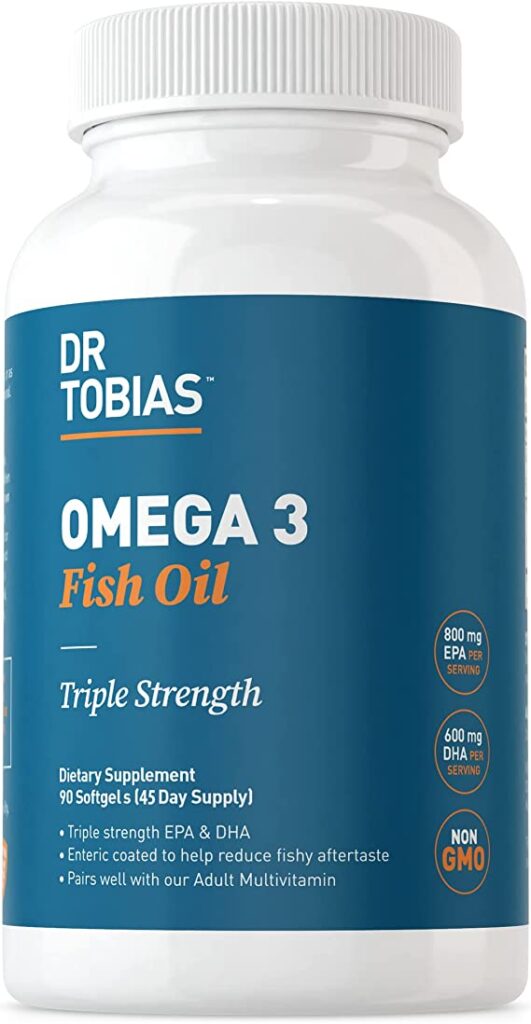
Dr. Tobias Omega 3 Fish Oil – Triple Strength Dietary Nutritional Supplement – Fish Oil Supplements, Includes EPA & DHA – 2000 mg per Serving, 90 Soft Gel Capsule
6. Alcohol Consumption
Recommended limits
Moderate alcohol consumption is defined as up to one drink per day for women and up to two drinks per day for men. Excessive alcohol intake can lead to high cholesterol levels and other health issues.
Potential health benefits
Moderate alcohol consumption, particularly red wine, may provide some cardiovascular benefits due to its antioxidant content.
Risks of excessive alcohol consumption
Excessive alcohol intake can lead to high triglyceride levels, liver damage, high blood pressure, and increased calorie intake, which can contribute to weight gain and high cholesterol levels.
7. Natural Supplements
Plant sterols and stanols
Plant sterols and stanols, available in supplement form, can help lower LDL levels by blocking its absorption in the intestines.
Omega-3 fatty acid supplements
If you don’t consume enough fatty fish, omega-3 fatty acid supplements can be beneficial in reducing triglyceride levels and supporting heart health.
Garlic supplements
Garlic has been associated with cholesterol-lowering properties. They may help reduce LDL levels, but consult your doctor before starting any new supplements.
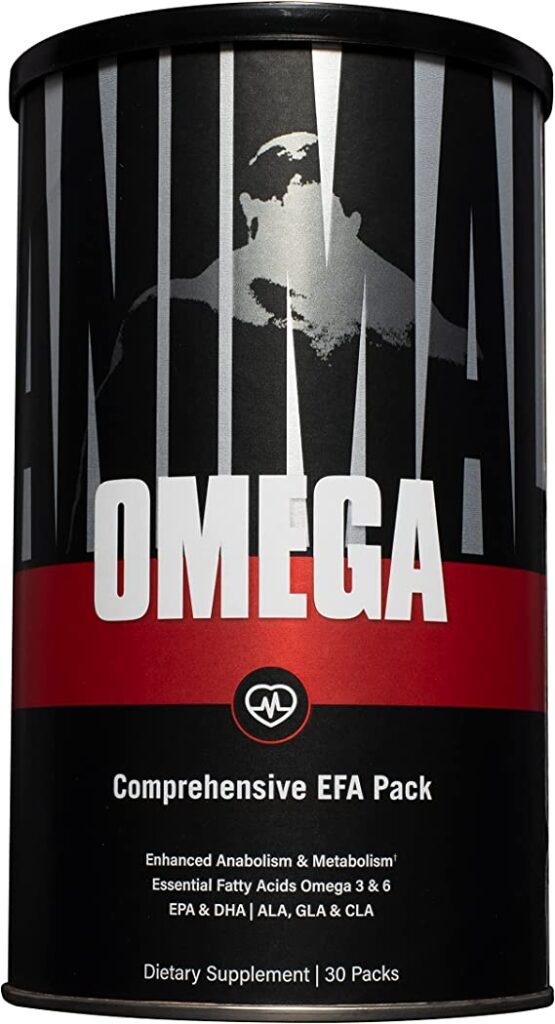
Animal Omega-Omega 3 6 Supplement-Fish Oil,Flaxseed Oil,Salmon Oil,Cod Liver,Herring, and more-10 Sources of Omegas and EFAs -Full dose of EPA,DHA,CLA+Absorption Complex-Pack of 30(Packaging may vary)
8. Stress Management
The impact of stress on cholesterol levels
Chronic stress can raise LDL cholesterol levels and contribute to unhealthy habits like overeating or smoking, which further impact cholesterol levels and heart health.
Stress reduction techniques
Engage in stress reduction techniques such as regular exercise, meditation, deep breathing exercises, yoga, spending time with loved ones, and pursuing hobbies.
9. Regular Health Check-ups
Importance of regular check-ups
Regular health check-ups allow for early detection and management of high cholesterol levels and other health conditions.
Monitoring cholesterol levels
Regular blood tests can measure it’s levels and help you track your progress in managing and lowering your cholesterol.
Seeking medical advice
If lifestyle modifications alone do not effectively lower it´s levels, consult a healthcare professional who may recommend medication to help manage cholesterol.
Conclusion
Lowering cholesterol levels is essential for maintaining heart health and reducing the risk of heart disease. By adopting healthy lifestyle habits, including a heart-healthy diet, regular exercise, stress management, and avoiding smoking and excessive alcohol consumption, you can effectively lower it´s levels naturally. Remember to consult with your healthcare provider for personalized advice and guidance.
FAQs (Frequently Asked Questions)
Q1: Can I lower my cholesterol without medication?
Yes, in many cases, adopting a healthy lifestyle that includes a balanced diet, regular exercise, and other healthy habits can help lower cholesterol without medication. However, consult with your healthcare provider for personalized guidance.
Q2: Is it necessary to eliminate all fats from the diet to lower cholesterol?
No, it is not necessary to eliminate all fats from the diet. It’s important to choose healthy fats, such as monounsaturated and polyunsaturated fats, and limit unhealthy fats like saturated and trans fats.
Q3: How long does it take to see results in lowering cholesterol through lifestyle changes?
The time it takes to see results in lowering cholesterol through lifestyle changes varies from person to person. In general, significant improvements can be observed within a few months, but long-term adherence to healthy habits is essential.
Q4: Can supplements alone lower cholesterol levels?
Supplements, such as plant sterols, omega-3 fatty acids, and garlic supplements, can contribute to lowering cholesterol levels. However, they should be used in conjunction with a healthy lifestyle and under the guidance of a healthcare professional.
Q5: Can stress affect cholesterol levels?
Yes, chronic stress can impact cholesterol levels. It can lead to unhealthy habits and behaviors that contribute to high cholesterol levels. Managing stress through stress reduction techniques is important for maintaining heart health.
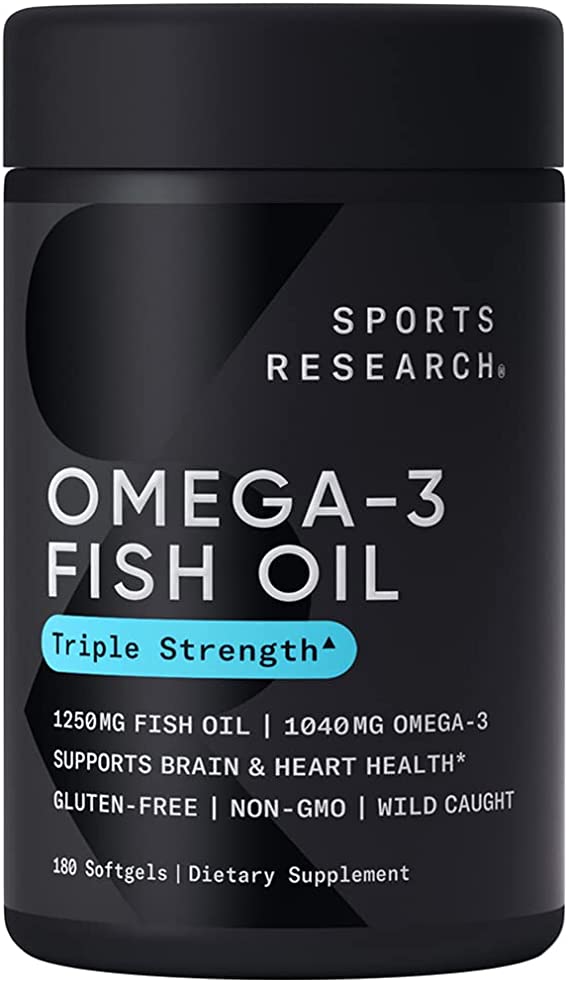
Sports Research Triple Strength Omega 3 Fish Oil – Burpless Fish Oil Supplement w/EPA & DHA Fatty Acids from Wild Alaskan Pollock – Heart, Brain & Immune Support for Men & Women – 1250 mg, 180 ct
